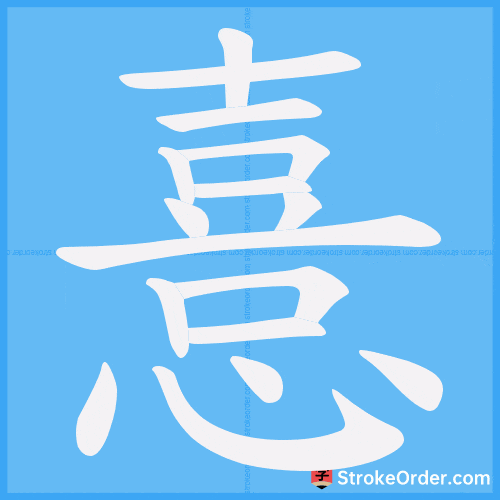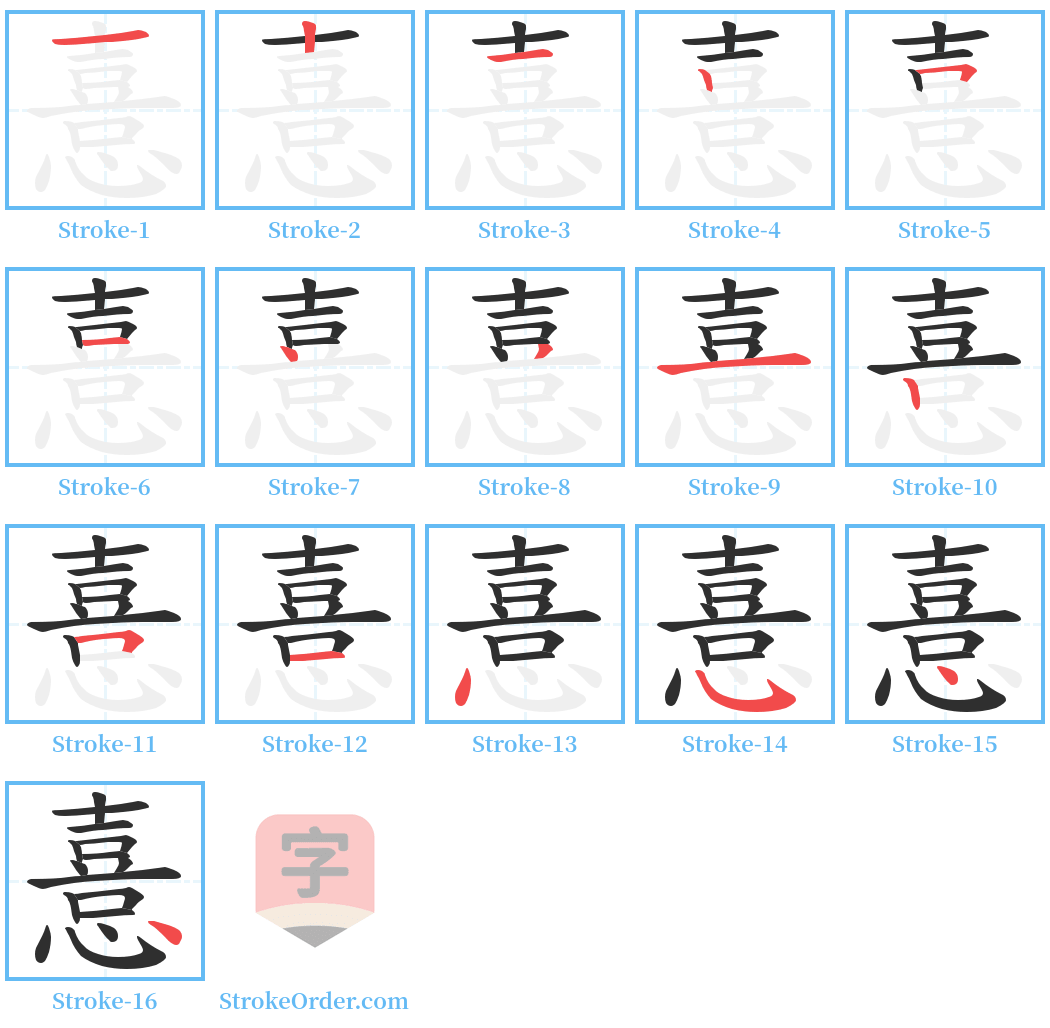憙 Stroke Order
Animated Stroke Order of 憙

Stroke Order Diagrams for 憙

Information of 憙
Pinyin
xǐ
Radical
心
Strokes
16 strokes
Usage
★★
Definition
憙 [xǐ]
1. 同“喜”。
(Same as "喜".)
2. 指容易发生某种变化。
(Refers to easily undergoing a certain change.)
3. 喜悦。后作“喜”。
([En.] be delighted.)
4. 喜好;爱好。
([En.] like; love; be fond of; take delight in.)
5. 喜爱;热中于。
([En.] be keen on.)
Examples:
- 《说文》:憙,说(悦)也。徐灏曰:“喜憙古今字。”
(Shuo Wen: 憙 means (delight). Xu Hao says: "喜 and 憙 are words from ancient to modern times.")
- 《汉书·贾谊传》:遇之有理,故群臣自憙。
(Han Shu, Jia Yi's Biography: Encountering it with reason, hence the ministers delight themselves.)
- 司马迁《史记》:诸所过毋得掠卤,秦人憙,秦军解,因之大破。
(Sima Qian, Records of the Grand Historian: No plundering should be allowed where they pass, the Qin people are delighted, the Qin army was relieved, resulting in a great defeat.)
- 《汉书·郊祀志》:天子心独憙其事。
(Han Shu, Record of Sacrifices: The emperor alone delights in this matter.)
- 《谷梁传》:陈侯憙猎,淫猎于蔡,与蔡人争禽。
(Gu Liang Zhuan: Lord Chen delights in hunting, indulging in hunting in Cai, contending with the Cai people for birds.)
- 元好问《刘时举节制云南》:幽并豪侠憙功名,咄嗟顾盼风云生。
(Yuan Hao Wen, Liu Shi Ju governs Yunnan: The secluded and chivalrous delight in fame, sighing and glancing at the winds and clouds.)
6. 容易发生某种变化 (easily).
(Easily undergoing a certain change.)
Example:
- 《齐民要术》:有叶者,憙烂。
(Qimin Yao Shu: Those with leaves easily decay.)